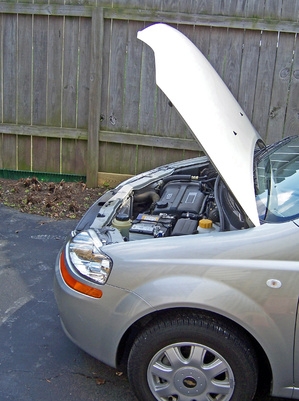
Automotive cooling systems use liquid to transfer the heat from the engine to the radiator, where it is cooled. Though water alone can perform this task, engine coolant is also used in a number of other ways that require qualities water does not provide.
Antifreeze is mixed with water to create engine coolant, as water alone freezes at commonly encountered temperatures. When water freezes, it expands and can cause damage to the engine, radiator and other cooling components. Antifreeze greatly lowers the freezing temperature of engine coolant, allowing for its use in cold temperatures.
The engine coolant is moved through the system via the water pump. The engine coolant is not only moved by the pump, but it also lubricates the water pump. Additives in the engine coolant provide an increased amount of lubrication than water alone. This reduces wear to the water pump and extends the pump's service life.
Engine coolant contains anti-corrosive additives that protect the cooling system and engine components contacted by the coolant. Using just water in the cooling system would increase the rate of corrosion in the radiator, heater core and cooling channels in the engine.